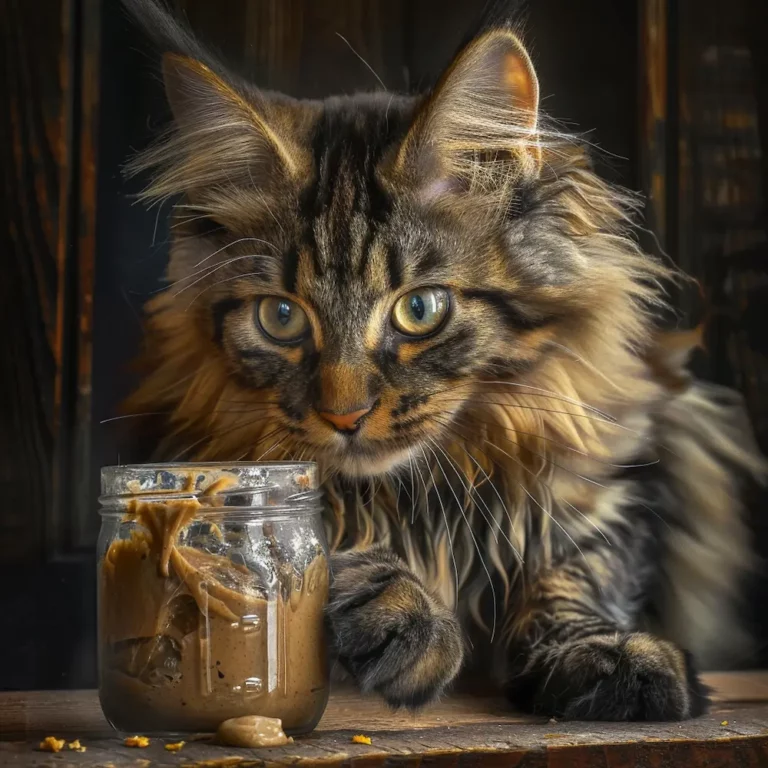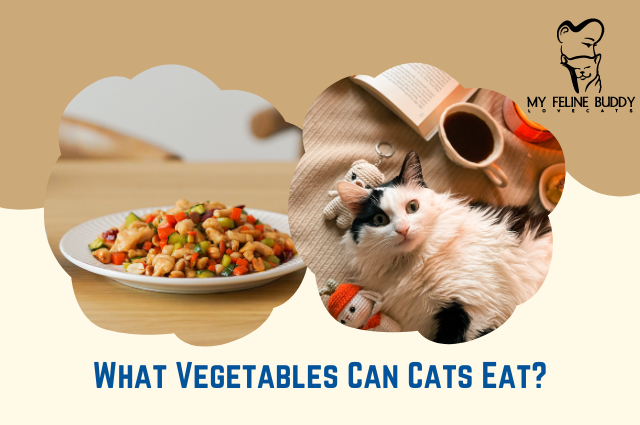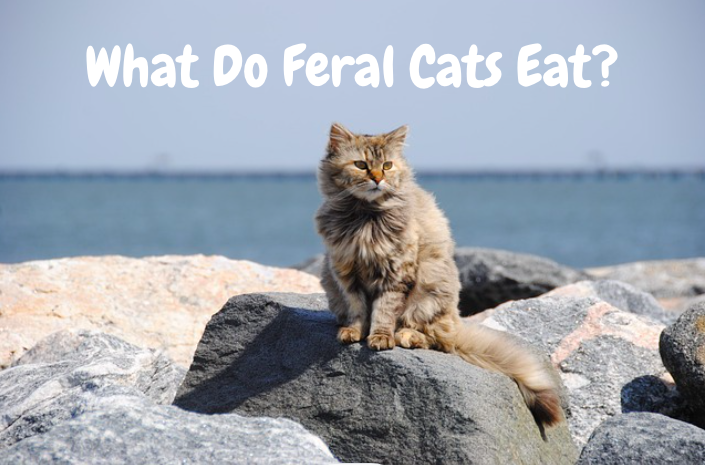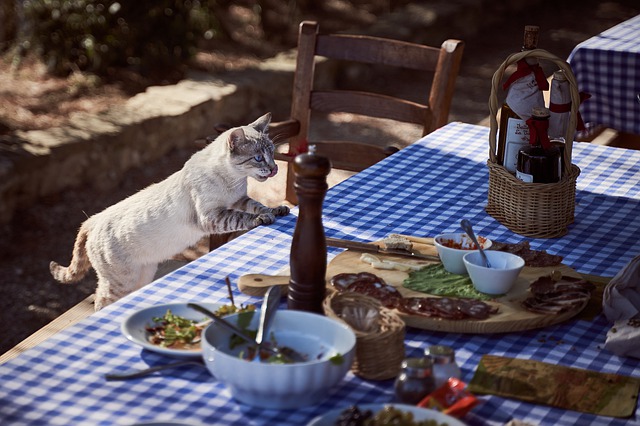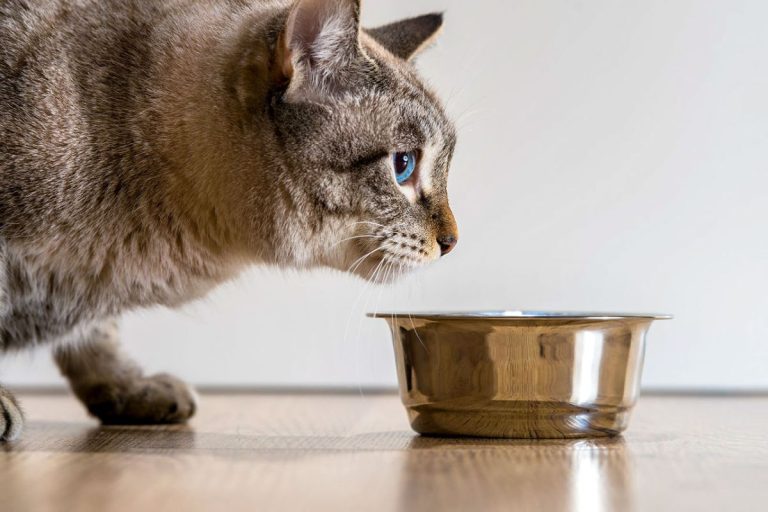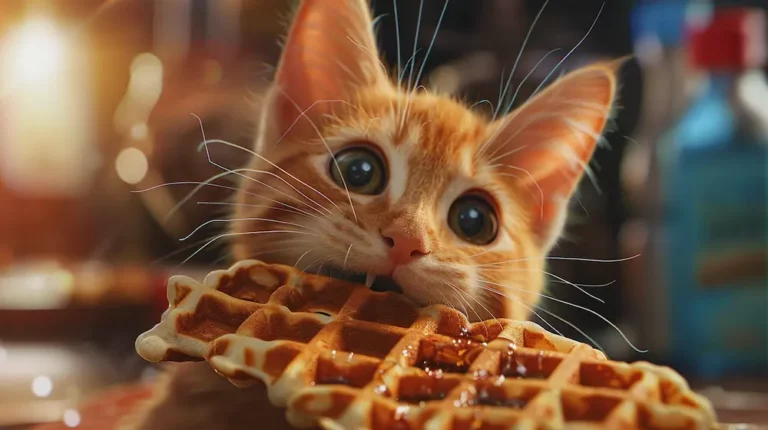Can Cats Really Eat Cheese? Here’s What Vets Say!
Alright, so we’ve all seen those adorable videos of cats going nuts over cheese, right?
But before you start sharing your cheddar with your beloved kitty like it’s the latest TikTok trend, let’s talk science for a moment.
Did you know that most adult cats are actually lactose intolerant?
Yep, turns out they can’t digest lactose well, which can lead to some not-so-cute digestive issues.
So, while a tiny nibble of cheddar or Swiss might be okay, other kinds could spell trouble.
The Nutritional Value of Cheese
When we talk about the nutritional value of cheese, it’s like discussing the cast of ‘The Avengers’—each type brings its own unique strengths and benefits to the table.
Just like Tony Stark’s genius or Hulk’s strength, cheese packs a punch with an array of nutrients.
High in protein and calcium, cheese is kind of like the Wolverine of the dairy world, helping to build and maintain strong muscles and bones.
Cheese is also a good source of Vitamin B12, essential for nerve function, and riboflavin, which helps in energy production. Imagine your body as the Starship Enterprise; without these vitamins, it wouldn’t boldly go where no one has gone before.
And let’s not forget the healthy fats that provide long-lasting energy, much like Captain America’s stamina.
However, not all cheeses are created equal.
Some, like mozzarella, are lower in fat and calories, making them more akin to Black Widow—lean and powerful.
Others, like cheddar, are richer and more indulgent, a bit like Thor’s mighty hammer, Mjölnir.
Lactose Intolerance in Cats
Picture your
Cats, like many superheroes, have their weaknesses.
Most adult cats are lactose intolerant, meaning their digestive systems can’t properly break down lactose, a sugar found in milk and dairy products.
Growing up, kittens produce lactase, the enzyme needed to digest lactose. However, as they age, their bodies produce less of this enzyme, making it difficult for them to handle dairy.
Here’s a quick comparison to help you grasp this better:
| Age of | Lactase Production | Ability to Digest Lactose |
|---|---|---|
| Kitten | High | Strong |
| Adult | Low | Weak |
| Senior | Very Low | Very Weak |
Think about it like this: feeding cheese to your adult
It just doesn’t end well.
Your
Symptoms like diarrhea, stomach cramps, and gas aren’t fun for anyone involved.
Potential Health Risks
Aside from lactose intolerance, feeding your
For starters, cheese is high in fat and salt.
Too much fat can lead to obesity, which is a gateway to a host of other issues like diabetes and heart disease.
I mean, we all love Garfield, but we don’t want our cats mimicking his diet and health issues.
Salt is another big concern. Cats are much smaller than us, so what seems like a harmless pinch of salt in cheese can actually be harmful to them.
High sodium levels can lead to hypertension and even kidney problems in the long run.
Let’s not forget about the potential for allergic reactions.
While it’s rare, some cats can be allergic to dairy, which can cause symptoms ranging from itchy skin to digestive issues.
Imagine your poor kitty scratching all day or suffering from diarrhea just because of a cheese treat!
Safe Cheese Options
If you’re keen on sharing cheese with your kitty companion, let’s explore some safer options to keep both of you happy and healthy.
First off, remember that moderation is key (we’re not talking a cheese platter here). Hard cheeses like cheddar or Swiss are often lower in lactose, making them a safer bet for cats who might be lactose intolerant.
You might’ve heard of cottage cheese, which has a lower lactose content than regular cheese. Plus, it’s high in protein, which cats love. Just make sure it’s plain and unsalted.
Brie or blue cheese might sound fancy, but steer clear; they can cause tummy troubles and are often loaded with mold or bacteria that aren’t
Now, if you’re thinking about giving your
How Much Cheese Is Too Much?
When it comes to feeding your
Cats are lactose intolerant. Yep, that means too much cheese can lead to some serious digestive issues. A small nibble might be okay, but anything more can spell trouble. Think of it like caffeine for us: a little perk is fine, but downing five espressos? Not so much.
Consider these risks before sharing your cheese:
- Upset Stomach: Nobody wants a puking kitty.
- Weight Gain: Extra calories lead to extra pounds.
- Allergic Reactions: Some cats might be sensitive to dairy.
Science says a
Conclusion
So, while sharing a bit of cheese with your kitty can feel like a treat straight out of a Tom and Jerry cartoon, remember it’s all about moderation.
Cats are lactose intolerant, so stick to small amounts of low-lactose options like cheddar. Keep an eye out for any tummy troubles or allergies.
Think of it like offering a tiny piece of the moon to your

